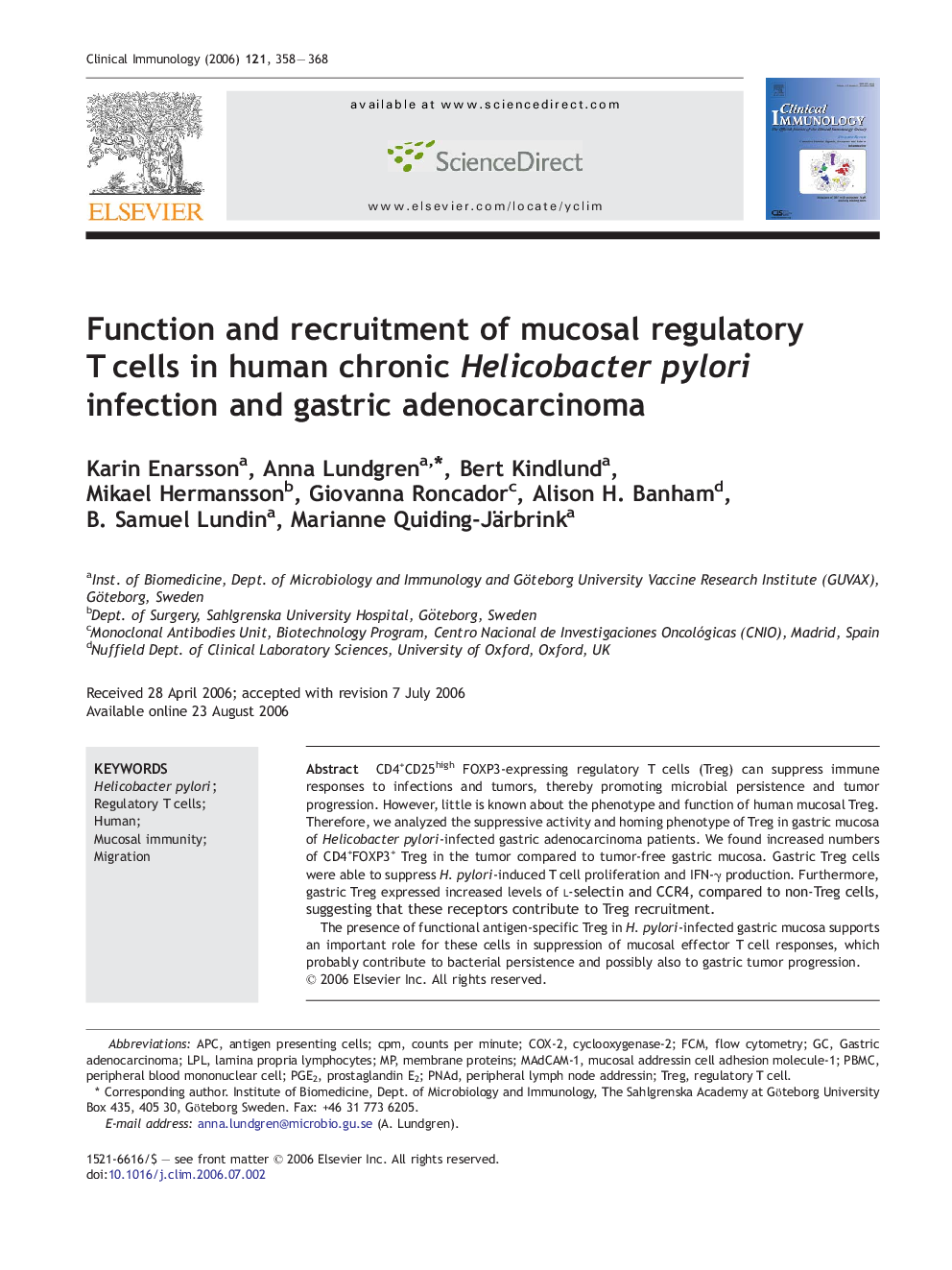| Article ID | Journal | Published Year | Pages | File Type |
|---|---|---|---|---|
| 3258704 | Clinical Immunology | 2006 | 11 Pages |
CD4+CD25high FOXP3-expressing regulatory T cells (Treg) can suppress immune responses to infections and tumors, thereby promoting microbial persistence and tumor progression. However, little is known about the phenotype and function of human mucosal Treg. Therefore, we analyzed the suppressive activity and homing phenotype of Treg in gastric mucosa of Helicobacter pylori-infected gastric adenocarcinoma patients. We found increased numbers of CD4+FOXP3+ Treg in the tumor compared to tumor-free gastric mucosa. Gastric Treg cells were able to suppress H. pylori-induced T cell proliferation and IFN-γ production. Furthermore, gastric Treg expressed increased levels of l-selectin and CCR4, compared to non-Treg cells, suggesting that these receptors contribute to Treg recruitment.The presence of functional antigen-specific Treg in H. pylori-infected gastric mucosa supports an important role for these cells in suppression of mucosal effector T cell responses, which probably contribute to bacterial persistence and possibly also to gastric tumor progression.
